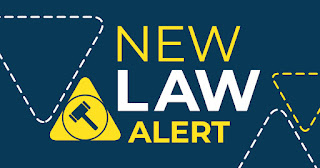Effective October 26, 2020, HUD implemented a new disparate impact fair housing standard.
Disparate impact discrimination occurs when housing practices have an unjustified discriminatory effect even though they were not motivated by a discriminatory intent.
The new standard exists at 24 CFR 100.500 and it makes a claim of disparate impact discrimination far harder to bring and even harder to prove as compared to the prior HUD standard.
Previously, the regulation did not contain an express pleading standard and instead, only required the plaintiff to prove "that a challenged practice caused or predictably will cause a discriminatory effect."
Now a plaintiff must "sufficiently plead facts to support each of the following elements: (1) That the challenged policy or practice is arbitrary, artificial, and unnecessary to achieve a valid interest or legitimate objective such as a practical business, profit, policy consideration, or requirement of law; (2) That the challenged policy or practice has a disproportionately adverse effect on members of a protected class; (3) That there is a robust causal link between the challenged policy or practice and the adverse effect on members of a protected class, meaning that the specific policy or practice is the direct cause of the discriminatory effect; (4) That the alleged disparity caused by the policy or practice is significant; and (5) That there is a direct relation between the injury asserted and the injurious conduct alleged."
With respect to the 3rd element, that is a very heavy burden for a plaintiff to satisfy at the pleading stage of litigation because the requisite evidence is often unavailable until the parties have engaged in the discovery process.
Moreover, while the prior regulation provided that a defendant would then have to rebut the claim by "proving that the challenged practice is necessary to achieve one or more substantial, legitimate, nondiscriminatory interests[,]" a defendant now can just rebut the first element "by producing evidence showing that the challenged policy or practice advances a valid interest (or interests) and is therefore not arbitrary, artificial, and unnecessary." Changing the term from a "substantial" interest to "a valid interest" results in the defendant's burden seemingly being far lower.
Moreover, under the new standard, once the defendant rebuts the first element, "the plaintiff must prove by the preponderance of the evidence either that the interest (or interests) advanced by the defendant are not valid or that a less discriminatory policy or practice exists that would serve the defendant’s identified interest (or interests) in an equally effective manner without imposing materially greater costs on, or creating other material burdens for, the defendant." Previously, this was the defendant's burden.
Regardless, there are now also 3 express defenses available, including that "(i) The policy or practice is intended to predict an occurrence of an outcome, the prediction represents a valid interest, and the outcome predicted by the policy or practice does not or would not have a disparate impact on protected classes compared to similarly situated individuals not part of the protected class, with respect to the allegations under paragraph (b). This is not an adequate defense, however, if the plaintiff demonstrates that an alternative, less discriminatory policy or practice would result in the same outcome of the policy or practice, without imposing materially greater costs on, or creating other material burdens for the defendant. (ii) The plaintiff has failed to establish that a policy or practice has a discriminatory effect under paragraph (c) of this section. (iii) The defendant’s policy or practice is reasonably necessary to comply with a third party requirement, such as a: (A) Federal, state, or local law; (B) Binding or controlling court, arbitral, administrative order or opinion; or (C) Binding or controlling regulatory, administrative, or government guidance or requirement."
Housing participants should be particularly interested in the third available defense in the form of a controlling administrative opinion or binding regulatory guidance. It is strenuously suggested that every housing industry participant seeks such opinion or guidance as a necessary incident of any business plan covering a new product or service. To fail to do so is just reckless in a world where such a defense exists.
That being said, it is noted that this regulation only pertains to a federal housing discrimination claim and states and locales may offer increased protections to their citizens. So, these other laws must also be analyzed for housing participants to the extent that they afford disparate impact claims (e.g., NYC Admin. Code).












